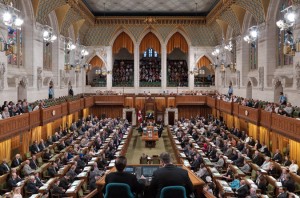 Congratulations! Your interest in medical politics sets you apart from most practicing physicians.
Congratulations! Your interest in medical politics sets you apart from most practicing physicians.
I was asked to share some thoughts for doctors entering politics. I tried to focus on a few favourite concepts.
We can discuss process details, or issues about specific organizations, in the comments section.
No One is an Expert on Everything
You can learn a tonne about medical politics, but you will never be a superstar at everything. Medical politics is not like Biology. You cannot aim for 98% on the exam.
I suppose the OMA President might almost be an expert on everything, for a few minutes, sometime near the end of his/her term. But even Presidents soon find they must defer to someone else.
Do not set out to learn everything. You will despair. Let it sneak up on you.
Everyone is an Expert on Something
Find one thing that interests you: IT, immunizations, HSFR, whatever. Pour yourself into it, even for just a few minutes.
You are now, with almost certainty, an expert on this issue in your local community.
Share what you know. Ask others what they think. Learn more about it. You will be the ‘go to’ person in your hospital or clinic on that topic.
As an expert, you add value every time you share your expertise. Get addicted to adding value. Your addiction will make you crave more expertise.
Your medical politics hobby will soon take over your life as you seek to learn more and more. And you will love it. Make sure your family approves!
Experience Counts in Medical Politics
Doctors perform in a strange play. We train to act with confidence, while knowing we have incomplete knowledge.
We learn to trust our training. Doctors must act with as much certainty as colleagues with years of experience. No matter what grades you got in medical school, every graduate gets called ‘doctor’ and bills the same fees as experienced doctors.
Most of the world does not work like this.
Other industries bow to experience. An MBA does not mean you can run IBM. You need a few decades to learn how to lead.
Of course, some doctors bring an interest in politics from grade school. They volunteered on political campaigns and followed politics their whole life. But they are rare. And even wunderkinds need to value experience and humility.
Experience makes you a better leader, but even more importantly, valuing experience increases your influence and teaches you defence skills. Find experienced leaders and suck every bit of wisdom you can get out of them.
A New Logic
Doctors learn to diagnose and treat. (Let’s forget about the ‘educate and motivate’ of modern medicine for now.) Patients usually give us the diagnosis on history and physical. Then, we treat; delayed treatment is unethical.
Diagnosis works the same in politics, but treatment is completely different. The process of arriving at a political solution means even more than the final solution itself. Many doctors hate this.
If the solution is to ‘do X’, then we should just do it. Why take so long to get it started?
Political solutions require people to buy in to an idea. People need to weigh the risks that a solution presents to their personal vision of how things should work. People want to feel they had a part in crafting the solution.
For many reasons like these, medical politics requires a new decision making process, a different logic.
Obsessed with Issues, Blind to Vision
Doctors never need to think about vision. They accepted the medical vision long ago: doctors help people. The rest of our life is spent fixing particular issues. For doctors, reflection on vision demands flexing an atrophied muscle.
 Issues are to doctors as squirrels are to dogs: irresistible!
Issues are to doctors as squirrels are to dogs: irresistible!
Doctors find and fix issues. That’s why patients value doctors. But after decades of getting rewarded for fixing issues, we often struggle to concentrate on other things.
Medical politics is loaded with issues, important ones. But issues should not define our goals. Doctors need vision in medical politics.
- Where are we going?
- What do we sacrifice by supporting this solution?
Doctors need to work, like guide dogs in a park, and stay focused on where we are going, without chasing the squirrels.
Clone Yourself
You should think about succession planning as soon as you get elected. Do you know anyone who:
- Enjoys being overwhelmed with new material?
- Gets excited about ideas?
- Respects experience but strives for change?
- Has patience for process?
- Loves discussing vision, not just issues?
Today, strong political forces push doctors away from working as independent professionals, towards employed technicians. We need doctors at the centre of medical politics.
Again, Congratulations on stepping into a fascinating world! Find a mentor and then teach them what you learn. Patients need doctors interested in the weirdness of medical politics more than ever before.
Note: I am not the official spokesperson for any organization. These thoughts have not been vetted. Errors are my own.
photo credit: www.parl.gc.ca, www.disney.wikia.com

Worth remembering that at the highest level medical politicians are usually the official spokespeople for an association or organization.
If you choose to go this route you need to remember that at the pinnacle of political achievement you may need to sublimate your own views to espouse those of the organization you are representing.
Great comment, Pat. Well said.
Your comment leads to things like board solidarity, speaking with one voice, leaving board debates with the board, etc. Crucial advice for sure! If we find our personal convictions demand that we speak out against a board policy, and we haven’t been able to influence change through the usual internal channels, then we must resign from the board.
Great point. Thanks for taking time to share it!
Best
Shawn
Very well said Shawn, I especially like the point about vision. Yes where are we going? What will our profession look like in 20 yrs? Will we even have a profession? Do we accept that we will always be indentured servants of the state, denied the basic right to choose whether or not to work for government instead of work for our patients, or do we at some point find liberation? Our own OMA seems focused only on the contract cycle, somewhat akin to politicians only focusing on the election cycle. Unfortunately, the OMA seems incapable of change and bound in counterproductive policies and structures. It cannot see the obvious, that they cannot represent all doctors and do it well. They are incapable of challenging dogma that we can be better represented by smaller units that each negotiate a contract under an umbrella provincial or even national union.
Great questions Ernest! Those are exactly what we need to tackle.
I appreciate your comments that our association might be incapable of change, trapped by its governance structure. Many would agree. I don’t know how much we’ve spent trying to fix it…
But could there be a way for the OMA to host, or support, or convene a debate/forum on change? Or should we create parties inside the OMA to make sure we capture diversity of opinion instead of proliferating ‘consensus’? Can we ever have consensus without vigorous debate?
No matter how we get there, we need vision. Absent vision, we will become ‘providers’ in a nationalized machine.
Thanks so much for reading and sharing a comment!
Best regards
Shawn
Shawn, great introduction.
I also like to draw the distinction between “Politics” and “politics”. “Big P Politics” involve issues, positions, defensive posturing, offensive posturing and in some cases self promotion, which many docs feel uncomfortable with given how we are trained and in our role as fixers. Being “Political” is not everyone’s cup of tea for sure.
“Small p politics”, though is more about relationships, leadership and comfort with ambiguity. Doctors can be very influential in this space and can approach “politics” with the same lens they approach caring for their patients: listen, analyze, advise, build. revisit. For those of us who are happiest flying “just under the radar” it is important to note that this kind of politics is incredibly rewarding, wildly important and available within a line of work we are comfortable in day to day!
So glad you have given an opportunity to expand this thinking. If we combine the Big P and the small p we may have created the perfect storm for change!!
I really like your description of small ‘p’ politics as a natural way for docs to influence change.
Don’t be surprised if you get a few docs asking you for advice/mentorship!
Thanks for taking time to read and share your thoughts!
Cheers
Shawn